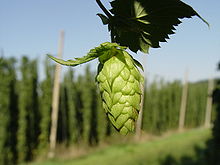 Did you know that the herbal remedy hops is related to marijuana and is legally sold in supermarkets, drugstores and health food stores across the world?
Did you know that the herbal remedy hops is related to marijuana and is legally sold in supermarkets, drugstores and health food stores across the world?
Hops is well known for its use in beer-making, where it’s been grown and used worldwide for centuries. Less well known, however, are the plant’s medicinal uses. Hops has been used for centuries in different types of medicine, including North American traditional medicines and Indian-Ayurvedic medicine, according to the American Botanical Council (ABC).
The English have also known about hops’ therapeutic benefits for some time. The ABC says one of the most prominent people treated with hops was King George III. He is believed to have slept on pillows filled with hops to help calm himself down.
Studies have found that hops is sedating (calming and sleep promoting), often with no unwanted side effects. Compounds in hops have various properties, including relieving aches and pains, and killing bacteria. Hops is used to help treat various health problems, such as sleeplessness and nervous problems. Many uses of hops have not been thoroughly tested, so hops’ full effectiveness is uncertain.
What is hops?
In what forms can we take hops?
How does hops work?
What is hops taken for?
What evidence is there that hops works?
Does hops have any side effects?
What medications can hops interact with?
Who should avoid taking hops?
What is hops?
Hops is a flowering plant that’s native to the Northern Hemisphere. It’s commercially grown in many countries throughout the world, mainly because it’s used to make beer.
In what forms can we take hops?
We can take hops in various ways, including:
- dried as tea
- as a tincture (a medicine made by dissolving a drug/herb in alcohol)
- in capsules
- in tablets
- in creams and lotions
Hops is often combined with other calming herbs, such as valerian.
Hops has been put into pillows to help people sleep, because the scent of hops can be calming.
How does hops work?
Hops contains compounds that, for example,:
- improve the quality of sleep, and help people get to and stay asleep
- calm us down
- improve digestion
- relieve pain
- are antibacterial (kill bacteria)
- are antifungal (kill fungus)
- are antihistamines (reduce the release of the chemical histamine in the body, which is especially useful to treat allergies)
- are antiseptic (prevent infection)
- are antispasmodic (relieve muscle spasms)
- are anti-inflammatory (reduce inflammation)
- are diuretic (help get rid of excess water in the body)
What is hops taken for?
Internally (by mouth) hops has been used for many things including:
- insomnia (sleeplessness) and other sleep problems
- anxiety
- restlessness
- stress and tension
- irritability
- attention deficit hyperactivity disorder (ADHD)
- digestive problems, such as stomach infections, diarrhea, indigestion, irritable bowel syndrome (IBS), ulcers, ulcerative colitis and and Crohn’s disease
- aches and pains, such as period pain, nerve pain, earaches, headaches and toothaches
- colds
- fever
- inflammation
- muscle tension and spasms
- fluid retention
- some cancers
- kidney and bladder infections
- high cholesterol
- starting the flow of breast milk
- worms
- jaundice
- dysentery
- leprosy
- tuberculosis
Applied to the skin, hops has been used for:
- abscesses
- bedsores
- boils
- bruises
- cuts
- dandruff
- reversing hair loss
- skin ulcers
- wounds
- wrinkles
Healthline.com warns that the uses of hops listed on its website (many of which are listed on this website) haven’t been thoroughly tested in humans. The safety and effectiveness of hops hasn’t always been proven. Some of these health problems can be serious, and should be assessed by a qualified healthcare provider.
What evidence is there that hops works?
A study on mice found hops made them calmer and sleepy. It also helped relieve pain and stop convulsions (fits). The authors noted that: “It is no surprise that a relative of Cannabis would be used to relax the central nervous system.” The results were published in 1993 in the journal Planta Medica.
A study of hops and valerian combined was published in 1998 in the Journal of the American Medical Association. The study found that together the two herbs improved sleep. Valerian is a plant that can help treat sleep problems.
Sleeppassport.com cites and references the results of three studies published in various medical newsletters/science journals. The studies found that a combination of hops and valerian can help promote sleep. Sleeppassport.com says: “There are many more such studies.”
Drugs.com says hops pickers have reported feeling calmer and sleepy when harvesting the crops.
According to the ABC, research on hops dating back over 200 years shows that the plant can calm people down and make them sleepy. Both animal and human studies confirm these effects.
Healthline.com says many uses for hops are based on tradition, limited research and scientific theories, and have not been thoroughly tested.
Does hops have any side effects?
WebMD says, “Hops are [sic] considered likely safe for most people.”
MedicineNet.com says allergic reactions to hops are unlikely. See a doctor or pharmacist straight away if you notice symptoms of an allergic reaction, such as:
- a rash
- itching
- swelling
- dizziness
- breathing problems
Healthline.com adds that hops might cause:
- dry cough
- bronchitis and other occupational respiratory diseases
- slowed breathing
- slowed thinking
- drowsiness
- depression
- an increase in blood sugar in people with diabetes, but lower blood sugar levels in people who don’t have diabetes
Healthline.com says eating large amounts of hops might cause:
- seizures (fits)
- hyperthermia
- restlessness
- vomiting
- stomach pain
- increased stomach acid
What medications can hops interact with?
According to WebMD, hops interacts with alcohol. Taking large doses of hops with alcohol might cause people to feel very sleepy.
MedicineNet.com says before taking hops, tell your doctor or pharmacist all prescription and non-prescription medication that you’re taking. Hops may interact with:
- anti-anxiety drugs
- antihistamines, such as diphenhydramine
- anti-seizure drugs
- medicine for sleep
- muscle relaxants
- narcotic pain relievers, such as codeine
- psychiatric medicines, for example phenothiazines such as chlorpromazine
- sedatives
- tranquilizers
MedicineNet.com recommends checking all non-prescription medicine labels carefully, especially cough-and-cold mixtures. Many contain drowsiness-causing antihistamines, such as diphenhydramine. These might interact with hops.
Healthline.com says be cautious when using medications, herbs or supplements that can affect blood sugar, such as medication for diabetes. The website also says hops might interact with:
- antibiotics
- anticancer drugs
- antidepressants
- antifungal drugs
- anti-inflammatory drugs
- antipsychotic drugs
- cholesterol-lowering drugs, herbs and supplements
- gastrointestinal drugs
- drugs that affect the “cytochrome P450” enzyme system
- drugs that have estrogen-like properties
Who should avoid taking hops?
Pregnant and breastfeeding women should avoid using hops, as not enough is known about how hops might affect them.
WebMD says hops might worsen depression, so people with this health problem should avoid taking hops. Hops might make people feel too tired when combined with anesthesia and other medications during and after surgery. For this reason, stop taking hops at least 2 weeks before surgery.
MedicineNet.com advises caution if you have diabetes, alcohol dependence and/or liver disease. If you take hops, limit how much alcohol you drink, because hops might worsen some effects, such as tiredness. The website recommends talking to your doctor before using hops if you have depression or cancer.
Healthline.com says people who should be cautious about taking hops are those:
- who drive or use machinery, because hops can make people drowsy
- with diabetes
- with hypoglycemia (low blood sugar levels)
- who take drugs or supplements that affect blood sugar
- who are allergic to peanuts, chestnuts and/or bananas
written by Nyomi Graef
References:
Bergner, P, 2001, Humulus: Hops effects on the nervous system, Medherb.com,
http://medherb.com/Materia_Medica/Humulus_-_Hops_effects_on_the_nervous_system.htm
Campion, K, 1985, Kitty Campion’s Handbook of Herbal Health, London, UK: Leopard Books
Hops, 2011, Wikipedia,
http://en.wikipedia.org/wiki/Hops
Hops, 2009, Drugs.com,
http://www.drugs.com/npc/hops.html
Hops, 2009, WebMD,
http://www.webmd.com/vitamins-supplements/ingredientmono-856-HOPS.aspx?activeIngredientId=856&activeIngredientName=HOPS
Hops, n.d., Medicinal Herb Info,
http://medicinalherbinfo.org/herbs/Hops.html
Hops: Great Herbs for Beer. Good Herbs for Sleep, 2011, Sleep Passport,
http://www.sleeppassport.com/herbs-for-sleep.html
Hops (Humulus lupulus L.), n.d., Healthline,
http://www.healthline.com/natstandardcontent/hops
Hops-oral, 2005, MedicineNet,
http://www.medicinenet.com/hops-oral/article.htm
Hops, whole, n.d., Monterey Bay Spice Company,
http://www.herbco.com/p-433-hops-whole.aspx
Humulus lupulus L., 1998, Center for New Crops & Plants Products, Purdue University,
http://www.hort.purdue.edu/newcrop/duke_energy/humulus_lupulus.html
Koetter, U et al., 2010, Hops (Humulus lupulus): A Review of its Historic and Medicinal Uses, HerbalGram, American Botanical Council,
http://cms.herbalgram.org/herbalgram/issue87/article3559.html
Lee, K M et al., 1993, Effects of Humulus lupulus extract on the central nervous system in mice, Planta Medica, Vol. 59 (Suppl.), A691
Valerian and Hops: Natural Herbal Products That Can Improve Sleep, 2009, Insider’s Health,
http://www.insidershealth.com/article_print/valerian_and_hops_natural_herbal_products_that_can_improve_sleep/3649

 September 18th, 2011
September 18th, 2011  Nyomi Graef
Nyomi Graef  Posted in
Posted in  Tags:
Tags: 

This is a fantastic overview of an under-recognised herb Nyomi. Thank you for the time you’ve put into it.
Thanks for this post. Love the information.
Hi Roberta,
Thanks for your comment. I’m glad you like my blog post.
Kind regards,
Nyomi
Insomnia began 30years ago during a period of extreme stress. It has been relentless. I have been evaluated in a sleep lab and diagnosed with “severe chronic insomnia.” I have tried everything, but at this point, I’m starting to think all is lost.
Sir,
I take monteklast and levocitrezine for allergy problem…..
can i take hops capsules after that ?
regards,
Manish
Hi Manish,
Hops might interact with antihistamines, such as Levocetirizine, and other medications, to cause bad side effects. Talk to your doctor about whether hops might be helpful for you.
All the best, and thanks for your comment and question.
Kind regards,
Nyomi
Great Post! Before I knew that they make beer with hops, not as a natural remedy. I will try to use it. Seems to be interesting.
Hi Timmy,
Thanks for your comment and your kind words about my blog post.
All the best trying hops.
Best wishes,
Nyomi
great post